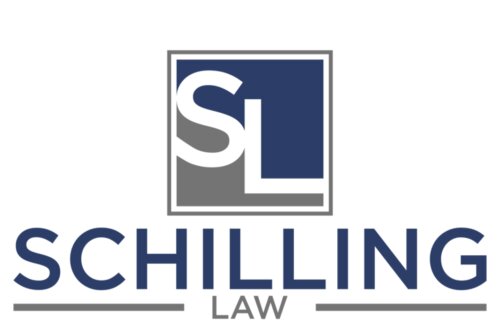Best Drugs & Medical Devices Lawyers in Kansas City
Share your needs with us, get contacted by law firms.
Free. Takes 2 min.
List of the best lawyers in Kansas City, United States
About Drugs & Medical Devices Law in Kansas City, United States:
Drugs & Medical Devices law in Kansas City, United States focuses on regulating the manufacture, distribution, and use of pharmaceuticals and medical devices to ensure the safety and efficacy of these products. Legal issues in this field can arise from issues such as product liability, recalls, regulatory compliance, and personal injury claims.
Why You May Need a Lawyer:
You may need a lawyer specializing in Drugs & Medical Devices law if you have been harmed by a defective drug or medical device, if you are facing regulatory action from the FDA, or if you need assistance navigating the complex legal landscape surrounding these products. A lawyer can help protect your rights and ensure that you receive the compensation you deserve.
Local Laws Overview:
In Kansas City, United States, laws related to Drugs & Medical Devices are primarily governed at the federal level by agencies such as the Food and Drug Administration (FDA) and the Federal Trade Commission (FTC). However, state laws and regulations may also come into play, particularly in cases involving product liability or personal injury claims. It is important to consult with a lawyer who is familiar with both federal and state laws in this area.
Frequently Asked Questions:
1. What is product liability, and how does it relate to Drugs & Medical Devices?
Product liability is a legal concept that holds manufacturers, distributors, and sellers responsible for injuries caused by defective products. In the context of Drugs & Medical Devices, product liability claims can arise from defects in design, manufacturing, or marketing of pharmaceuticals and medical devices.
2. What should I do if I have been harmed by a defective drug or medical device?
If you have been harmed by a defective drug or medical device, it is important to seek medical attention immediately and document your injuries. You should also contact a lawyer specializing in Drugs & Medical Devices law to discuss your legal options.
3. How can I ensure that a drug or medical device is safe and effective?
You can research the safety and efficacy of a drug or medical device by checking for FDA approval, reviewing clinical trial data, and consulting with healthcare professionals. It is also important to report any adverse reactions or side effects to the FDA.
4. What are the potential legal consequences of selling counterfeit drugs or medical devices?
Selling counterfeit drugs or medical devices is illegal and can result in criminal charges, civil penalties, and liability for damages caused by the counterfeit products. It is important to only purchase pharmaceuticals and medical devices from reputable sources.
5. Can I file a lawsuit if a defective drug or medical device has caused me harm?
Yes, you may be able to file a lawsuit for damages if you have been harmed by a defective drug or medical device. A lawyer specializing in Drugs & Medical Devices law can help you determine if you have a valid legal claim.
6. What is off-label drug use, and is it legal?
Off-label drug use refers to the practice of prescribing a drug for a use that has not been approved by the FDA. While off-label drug use is legal and common, manufacturers are prohibited from promoting drugs for off-label uses. It is important to consult with a healthcare professional before using a drug off-label.
7. How does the FDA regulate Drugs & Medical Devices?
The FDA regulates Drugs & Medical Devices by reviewing applications for new products, conducting inspections of manufacturing facilities, monitoring adverse event reporting, and issuing recalls or warnings when necessary. The FDA's goal is to protect public health by ensuring the safety and efficacy of pharmaceuticals and medical devices.
8. What is the role of the Federal Trade Commission in regulating Drugs & Medical Devices?
The Federal Trade Commission (FTC) enforces laws related to false advertising, deceptive marketing practices, and antitrust violations in the pharmaceutical and medical device industries. The FTC works to promote fair competition and protect consumers from misleading or fraudulent claims about drugs and medical devices.
9. How can I report a suspected drug or medical device safety issue to the FDA?
You can report a suspected drug or medical device safety issue to the FDA through the MedWatch program, which allows healthcare professionals and consumers to submit reports of adverse events, product defects, or other safety concerns. Reporting a safety issue can help the FDA identify and address potential risks associated with pharmaceuticals and medical devices.
10. What are my rights as a consumer of Drugs & Medical Devices in Kansas City, United States?
As a consumer of Drugs & Medical Devices in Kansas City, United States, you have the right to access safe and effective healthcare products, to be informed about potential risks and benefits of these products, and to seek legal recourse if you have been harmed by a defective or dangerous drug or medical device.
Additional Resources:
For more information about Drugs & Medical Devices law in Kansas City, United States, you can visit the websites of the Food and Drug Administration (FDA), the Federal Trade Commission (FTC), and the American Bar Association's Health Law Section. These resources provide valuable information and updates on legal issues related to pharmaceuticals and medical devices.
Next Steps:
If you require legal assistance in the field of Drugs & Medical Devices in Kansas City, United States, it is important to consult with a lawyer who has experience in this area. You can research local attorneys specializing in Drugs & Medical Devices law, schedule a consultation to discuss your case, and determine the best course of action to protect your rights and seek compensation for any injuries or damages you have suffered.
Lawzana helps you find the best lawyers and law firms in Kansas City through a curated and pre-screened list of qualified legal professionals. Our platform offers rankings and detailed profiles of attorneys and law firms, allowing you to compare based on practice areas, including Drugs & Medical Devices, experience, and client feedback.
Each profile includes a description of the firm's areas of practice, client reviews, team members and partners, year of establishment, spoken languages, office locations, contact information, social media presence, and any published articles or resources. Most firms on our platform speak English and are experienced in both local and international legal matters.
Get a quote from top-rated law firms in Kansas City, United States — quickly, securely, and without unnecessary hassle.
Disclaimer:
The information provided on this page is for general informational purposes only and does not constitute legal advice. While we strive to ensure the accuracy and relevance of the content, legal information may change over time, and interpretations of the law can vary. You should always consult with a qualified legal professional for advice specific to your situation.
We disclaim all liability for actions taken or not taken based on the content of this page. If you believe any information is incorrect or outdated, please contact us, and we will review and update it where appropriate.









